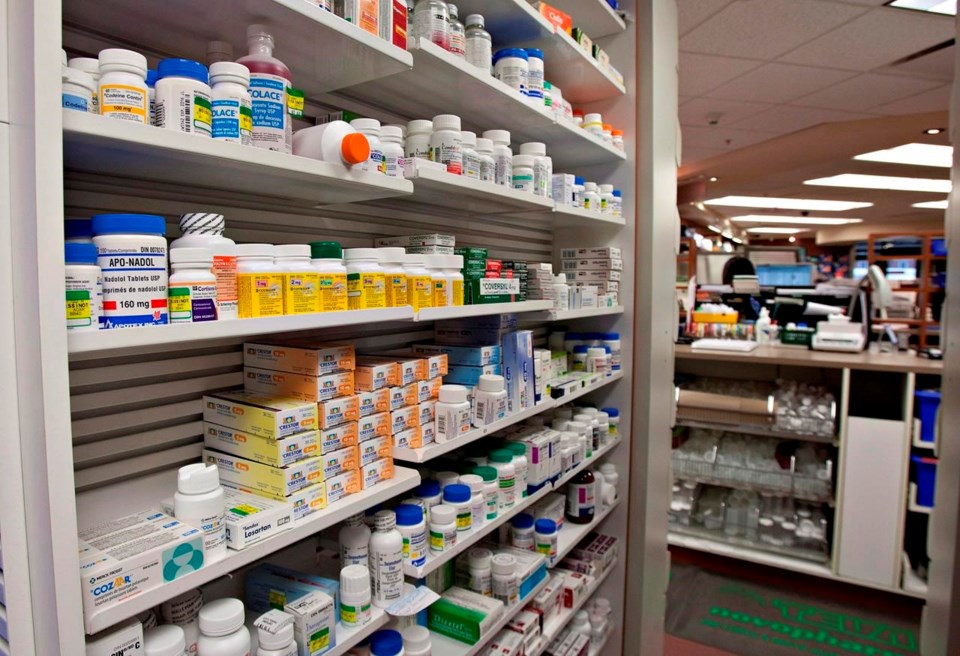VANCOUVER — British Columbia declared a provincial state of emergency Wednesday, giving the government broad and sweeping power to compel action while preserving supply chains of groceries and other essential items in the face of COVID-19.
"This is an all-hands on deck approach," said Solicitor General Mike Farnworth, who is also the minister in charge of emergency management.
Farnworth said the measure will also allow for the delivery of federal, provincial and local resources in a co-ordinated way and complement the declaration of a public health emergency in B.C. announced Tuesday.
The province announced 45 new cases on Wednesday including a man who lives at the Haro Park Centre in Vancouver, marking the spread of the virus to a third long-term care facility in the province.
Thirteen people were hospitalized including seven in intensive care. The total number of cases stood at 231.
Declaring a state of emergency empowers the provincial government to take actions such as controlling or prohibiting travel to and from the province. Under the law, the province can procure, fix prices and ration food, medical supplies and other essential products.
It authorizes the province to compel any person to render assistance if they are qualified, but Farnworth said he does not expect B.C. will have to require retired doctors, for example, to return to work.
"What we're seeing is what we see every time we've had a disaster in this province — people stepping up and coming forward," he said.
"I do not believe I'm going to have to use a power to force people to do what they instinctively know what they need to do."
The state of emergency is initially in effect for 14 days and may be extended or rescinded as necessary.
Farnworth said supply chains are in "good shape" and he expects that will continue.
As the government house leader, Farnworth said he is working to resume the legislature to complete urgent business to expedite the response to COVID-19.
In Vancouver, Mayor Kennedy Stewart is convening a special virtual council meeting on Thursday aimed at getting support for the declaration of a local state of emergency during the COVID-19 pandemic.
Stewart said the measure would allow the city to take action against people who are hoarding as well as against businesses that have remained open when they should be closed to prevent the spread of the disease.
"I am very concerned that people still are not taking this seriously," Stewart told a news conference on Wednesday.
Stewart called on the B.C. government to immediately ban evictions and offer help with rent if needed, adding the city's rent bank is overwhelmed with requests. The province must expand a residential tax deferral program for homeowners to cover more households beyond seniors and those with children, he said.
"No one should lose their home or become homeless as a result of this pandemic."
Provincial health officer Dr. Bonnie Henry implored people to wash their hands, cover their mouths when they cough and be mindful of vulnerable people, including the elderly, who are more prone to infection and need support from the community.
"We need to really think about taking care of each other, taking care of our communities and our families because it will be a changing situation over next few weeks," she said.
Health Minister Adrian Dix echoed those sentiments, saying everyone has a shared civic responsibility in protecting one another from the pandemic.
"For anyone who has been reluctant to join in these very explicit measures we can do to help protect one another's health, I say it's not too late to join the fight," he said.
Dix said at least 17,000 people in the province have been tested for the virus at five sites around the province and up to 4,000 calls a day are being answered on an 811 line.
BC Hydro also announced it was scaling back construction on the Site C project near Fort St. John because of the pandemic, focusing on essential work.
And pharmacists have been given the power to provide medication refills to patients without an updated prescription from a doctor or nurse practitioner.
The College of Pharmacists of B.C. says this will help patients avoid crowded medical offices, allowing safe social distancing, and will also free up medical professionals to treat more urgent cases.
This report by The Canadian Press was first published March 18, 2020
Amy Smart and Camille Bains, The Canadian Press



